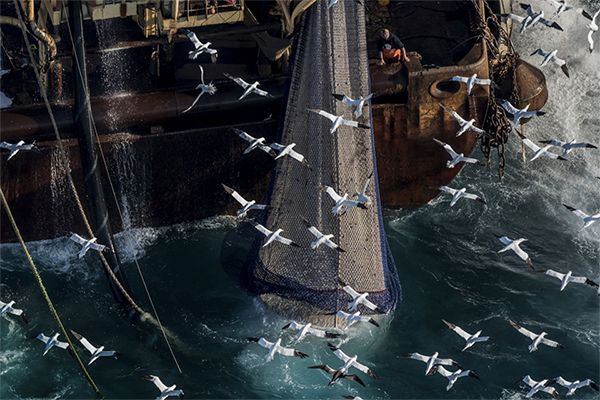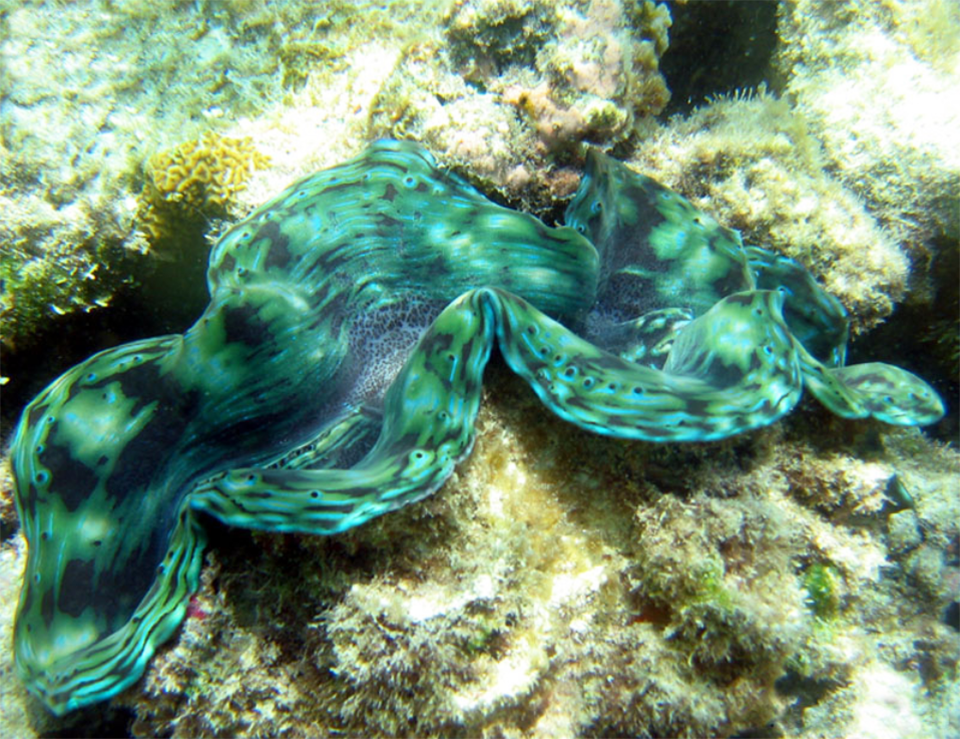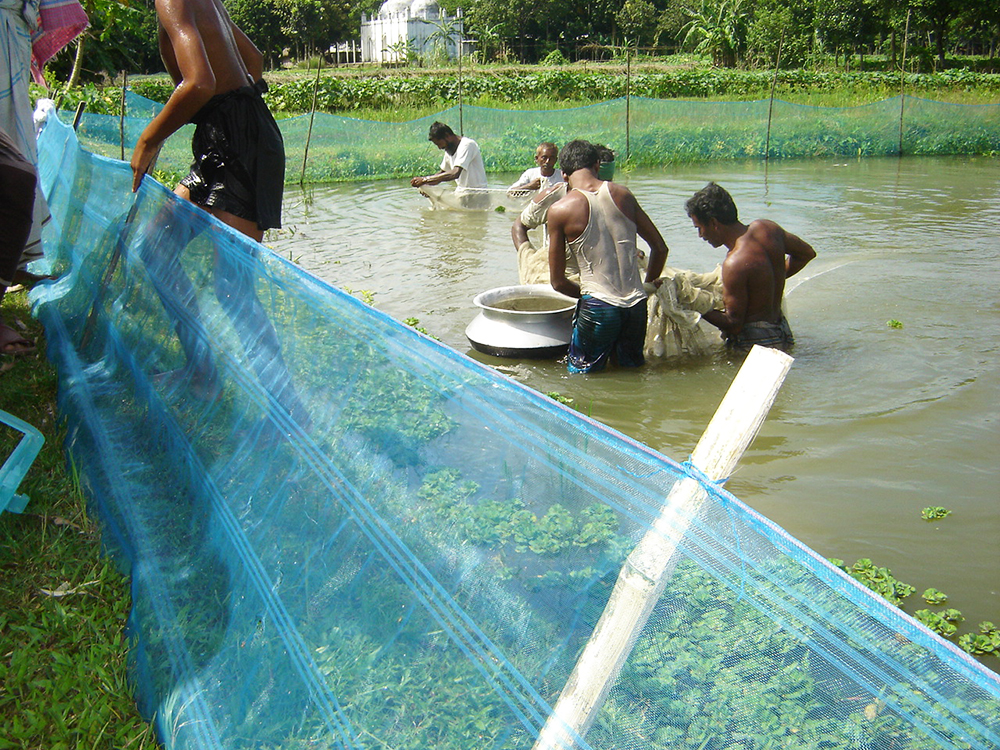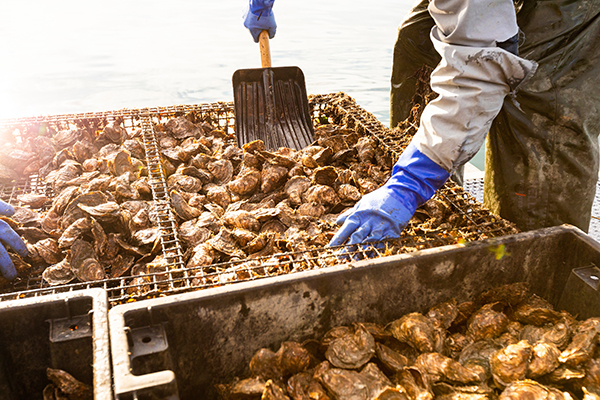Minderoo Foundation’s findings are a ‘wake-up call’ to set ‘ambitious’ targets to curb overfishing, but some experts question its conclusions

The decline in global fish populations is “far worse” than previously estimated, according to a new study from the Minderoo Foundation – an independent philanthropic organization in Australia that seeks “effective, scalable solutions.”
The Global Fishing Index (GFI), a comprehensive report on the state of marine fisheries worldwide, found that nearly 50 percent of global fish stocks have been depleted to less than 40 percent of their pre-fishing population. This finding is considerably higher than the previous global estimate of 34 percent.
“Half of the world’s assessed fish stocks are overfished and nearly 10 percent are on the point of collapse – threatening not only ocean ecosystems but also the livelihoods and food security of millions of people,” said Dr. Andrew Forrest, chairman of the Minderoo Foundation. “Our Global Fishing Index is a wake-up call to governments and businesses around the world.”
However, some experts disagree with the study’s findings, poking holes in the allegedly problematic methodology and definition of “overfished.”
“I have collaborated with the Minderoo Foundation in the past, but this report is highly flawed and should be viewed skeptically,” said Dr. Ray Hilborn, professor at the University of Washington’s School of Aquatic and Fishery Sciences, in a statement posted to the Sustainable Fisheries UW website. “The report fails to acknowledge that in much of the world, fisheries management is working. In many countries, overfishing has been greatly reduced and stocks are healthy or recovering, producing near-maximum benefits. […] This report cavalierly dismisses the long-standing efforts of thousands of people.”
The GFI raises questions on the state of the world’s fish stocks and fisheries management systems, but can it hold water in the face of criticism?
‘A road map of recommendations and solutions’
The GFI is the largest independent assessment of global fish stocks to date, involving more than 500 fisheries experts globally. It’s the first in an ongoing study that will measure country-level progress towards the global target set by the United Nations, which aims to effectively manage fisheries, end overfishing and restore fish stocks to sustainable levels.
However, data from the GFI report indicates that the commitment from global leaders to achieve that goal by 2020 is “still far from being met.” Evaluating governance and sustainability of fisheries in 142 coastal states, the GFI reveals critical gaps leading to overfishing and calls for governments and industry to act.
“The Global Fishing Index provides a road map of recommendations and solutions to address this problem that will guide Minderoo’s philanthropic efforts over the coming decade,” said Dr. Tony Worb, CEO of the Minderoo Flourishing Oceans Initiative. “While the issues and strategies will be very different for each country, all countries need to set ambitious targets to recover overfished stocks and report on their progress.”
Based on the state of fish stocks and local governance systems, no country is on track to restore all fish stocks to sustainable levels of abundance in the next decade. Eighty-two percent of countries received a “D” or an “E” grade, including 20 of the 25 largest producers of seafood such as China, Indonesia, Japan, Peru and Russia. Australia received a “D,” with 38 percent of its assessed fish stocks classified as “overfished” and 60 percent of the total catch in Australia’s waters from unassessed, data-lacking stocks.
Twenty countries were rated an “F” – as nearly all fish stocks were unassessed or overfished and there was little prospect of improving without considerable advances in management. Vietnam and Malaysia, which are also among the ten biggest fishing countries in the world, were among the countries that received a failing grade.
Only six countries (Chile, Iceland, Ireland, Latvia, Norway and the United States) received a “C” grade – the highest grade achieved. No country achieved an “A” or “B” grade.
“Every single country in this index needs stronger fisheries management, better laws and policies, better enforcement, better data collection, more science-based decisions,” said Dr. Forrest.
Findings indicate that most fisheries lack science-based management. Specifically, fisheries data are not consistently collected or analyzed, and the data isn’t being used for management. Dr. Kendra Thomas Travaille, GFI program lead, said that the lack of available information on fisheries is “concerning.”
“We lack basic data on 52 percent of the world’s marine catch,” said Thomas Travaille. “This problem is due to a lack of fisheries monitoring, compounded by a lack of transparency among governments and fishing companies about their fishing activities. Of even greater concern is that in many countries where local communities rely on fisheries for their livelihoods, food, and nutrition – the data on coastal fish stocks are missing altogether.”
“This represents a huge gap, and it’s essential that we help build capacity to manage and monitor these stocks so that they can be fished sustainably for future generations.”
‘Bizarre conclusions’
Reviewing the report, Dr. Hilborn criticized the allegedly “bad” methodology used by the authors, starting with the Index’s definition of “overfished.” Specifically, the authors label any stock whose abundance is below a level considered to produce maximum long-term yield (called the biomass that produces maximum sustainable yield or BMSY) as “overfished.” The report estimates that roughly 50 percent of stocks are below BMSY, and therefore, meet the criteria of “overfished.” But Hilborn challenges this conclusion.
“When fishing effort is perfectly managed to assure maximum long-term harvest (the typical objective), stocks will fluctuate around BMSY because there are natural fluctuations beyond management control,” said Hilborn. “Well-managed stocks will be above BMSY half the time and below BMSY half the time. Thus, a country that perfectly manages its fish stocks to generate food and employment for its people will, by this definition, end up with half of its stocks classified as overfished.”
Instead, Hilborn asserted that overfishing should be measured by “fishing pressure, not stock abundance,” and managers can only influence the fraction harvested. He pointed out that environmental changes can cause stocks to fall below any specific abundance threshold.
“Overfishing is not a global problem, as the report argues, but rather a problem confined to parts of the world where fisheries management is weak,” said Hilborn. “Certainly, even in the best-managed places some stocks are below target levels, but many of those stocks still well managed – they are either not fished at all or very slightly fished. Often, their poor status is due to environmental factors like climate change.”
The report also claims to have assessments of the status of 1,465 individual stocks. But many of those assessments used catch-based estimates, which Hilborn said is “a totally unreliable method of stock assessment.”
“The absurdity of the report’s methods and definitions is illustrated by its estimate of the proportion of a country’s assessed stocks that are above the accepted target,” he said. “Bangladesh, Indonesia, India, Myanmar, Malaysia, Nigeria and Thailand are listed as top-ranked major fishing countries. This simply fails any test of veracity. These are largely countries with limited fisheries management systems and generally recognized to suffer from significant overfishing.”
Also problematic is the governance grading system, which Hilborn claims is rife with inconsistencies and “cherry-picking” of facts to create an “overfishing narrative.”
“The report claims that over 50 percent of stocks are overfished and no country gets an A or B for its management efforts – only six manage to be graded C,” said Hilborn. “Countries that have essentially eliminated overfishing and are clearly delivering near-maximum benefits for their people are only graded C. Why?”
For instance, Hilborn said the six “C-scoring” countries all have track records of strong management systems, little overfishing, and adhering to national and international goals for fisheries management and ocean protections.
“Governance should be measured as the ability to regulate fishing pressure as stocks fluctuate in abundance,” said Hilborn. “The Minderoo governance index includes a wide range of factors that have little impact on the management of national fisheries, such as whether specific treaties have been signed.”
He compared the Minderoo Governance Index with a fisheries management index developed by the Sustainable fisheries UW team, which reflects a country’s capacity to manage its fish stock. He found no correlation between the two indexes, concluding that the Minderoo Governance Index does not measure the effectiveness of a country’s fisheries management system.
“The report should have calculated what fraction of a country’s catch comes from stocks that are well regulated,” said Hilborn. “The government of New Zealand, a country awarded a D, does calculate this and estimates that 91 percent of its catch comes from stocks that have no sustainability risk. Since sustainably exploiting fish stocks is the primary aim of fisheries management, a D for 91 percent is an undeserved slap in the face.”
Is there any merit to the GFI? Dr. M. Sanjayan, CEO of Conservation International, said the findings point to a “blind spot” in national conservation strategies.
“It’s hard to address problems if you can’t measure them,” Sanjayan said. “We’re hopeful that the Index will help usher in a new era of rigorous, science-based oversight of vital coastal fisheries, which employ 9 out of 10 people in the fisheries sector and support hundreds of millions of people.”
However, Hilborn cautioned against measuring all countries on the same playing field.
“Comparing every country in the world is a dead end,” said Hilborn. “Many countries have little data to use and the results for those countries have to be regarded with great skepticism. Almost all of the world’s fish catch comes from a few dozen countries. Let’s concentrate our efforts on understanding them.”
The summary and full report can be accessed here.
Follow the Advocate on Twitter @GSA_Advocate
Now that you've reached the end of the article ...
… please consider supporting GSA’s mission to advance responsible seafood practices through education, advocacy and third-party assurances. The Advocate aims to document the evolution of responsible seafood practices and share the expansive knowledge of our vast network of contributors.
By becoming a Global Seafood Alliance member, you’re ensuring that all of the pre-competitive work we do through member benefits, resources and events can continue. Individual membership costs just $50 a year.
Not a GSA member? Join us.
Author
-

Lisa Jackson
Lisa Jackson is a writer based in Hamilton, Canada, who covers a range of food and environmental issues. Her work has been featured in Al Jazeera News, The Globe & Mail and The Toronto Star.
[103,114,111,46,100,111,111,102,97,101,115,108,97,98,111,108,103,64,110,111,115,107,99,97,106,46,97,115,105,108]
Tagged With
Related Posts

Responsibility
A global overview of restorative shellfish mariculture
A review of restorative shellfish mariculture case studies around the world to identify emergent patterns across species and ecoregions.

Responsibility
How will climate change impact seafood production?
Much work is needed to properly address and prepare for the potential impacts of climate change, and to continue increasing the contribution of seafood production to feed a growing human population.

Responsibility
The Nature Conservancy defines restorative aquaculture in new study
The Nature Conservancy's latest study sets out a standard definition of and global principles for restorative aquaculture.

Responsibility
Joint initiative to replenish oyster population in Baltimore Harbor
Using a solar-powered automated aquaculture system, a collaboration aims to replenish the native oyster population in the Baltimore Harbor.


